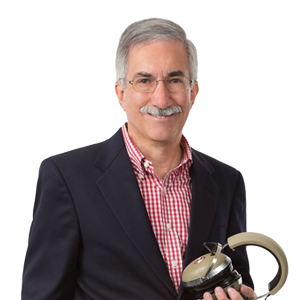WASHINGTON, DC—Womble Bond Dickinson telecom attorney John Garziglia is working with a group of 82 broadcasters in an effort to improve the Federal Communications Commission Equal Employment Opportunity (EEO) rules and procedures. The broadcast industry media has widely covered the group’s proposed reforms, including articles in Inside Radio,Communications Daily, Radio Ink, Radio World and Radio + Television Business Report.
The broadcasters’ proposed reforms ask the FCC to:
- Require wide outreach for every fulltime broadcast station job, no matter how few employees the company has. The broadcasters’ group says this would help even the smallest stations cast a wider net in recruiting new employees, particularly for entry-level positions that may serve as a first step to a career in broadcasting.
- Examine a broadcast company as an entire entity, not on a station or cluster basis. The group of broadcasters notes that many radio stations are operated by out-of-market staff. So examining a company in its entirety, rather than on a station or market basis, gives the FCC more accurate information on radio station staffing.
- Reset the FCC’s small station exemption for EEO rules to reflect the number of employees that work at a company, not a specific station it owns. Current FCC rules require EEO filings for any broadcaster with five or more full-time employees. But the broadcasters’ group says this is a burden for small stations. Instead, they ask the FCC to raise the small station threshold to 50 employees, noting that, among other metrics, this is the number of employees generally regarded by the human resources profession as demarcating the smaller from the larger entities and the same numerical threshold the federal government uses to require companies to offer employee health insurance under the Affordable Care Act.
In the proposal, the broadcasters stress that they have “no desire to lessen or diminish the FCC’s quest for diversity in employment and full and transparent opportunities for all job seekers in the broadcasting industry.” Rather, they want to reduce what has become a substantial paperwork and documentation burden on small and mid-sized stations that typically lack the HR staff found at larger broadcasting companies.
“For many decades now the FCC has had in place rules governing the EEO responsibilities of broadcast licensees,” the broadcasters write in their petition to the FCC. “For just about as many years, broadcasters have complained about the rules, not for their laudable goals, but rather for the burdensome paperwork and nonproductive actions required of small broadcasters. The Joint Commenters therefore advocate for pragmatism and equity in the FCC’s EEO rules for all broadcasters toward diverse broadcast station employment.”
- Click here to read “FCC Should Expand Small Station Exemption From EEO Rules, Say 82 Broadcasters” in Communications Daily (subscription publication – excerpt shared by permission).
- Click here to read “Note to FCC: Less Paperwork Please!” in Radio Ink.
- Click here to read “Broadcast Groups To FCC: EEO Paperwork Needs ‘Reallotment’” in Radio + Television Business Report (subscription required).
- Click here to read “Small Broadcasters Offer FCC Proposals to Improve EEO Enforcement” in Inside Radio.
- Click here to read “82 Broadcasters Want to Change the Definition of a Small Station” in Radio World.
- Also, click here to read the full text of the broadcasters’ comments and proposal to the FCC.



